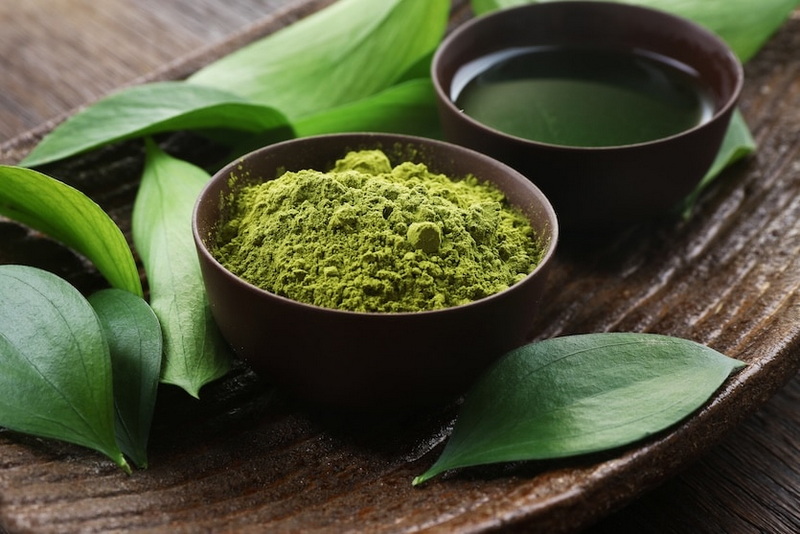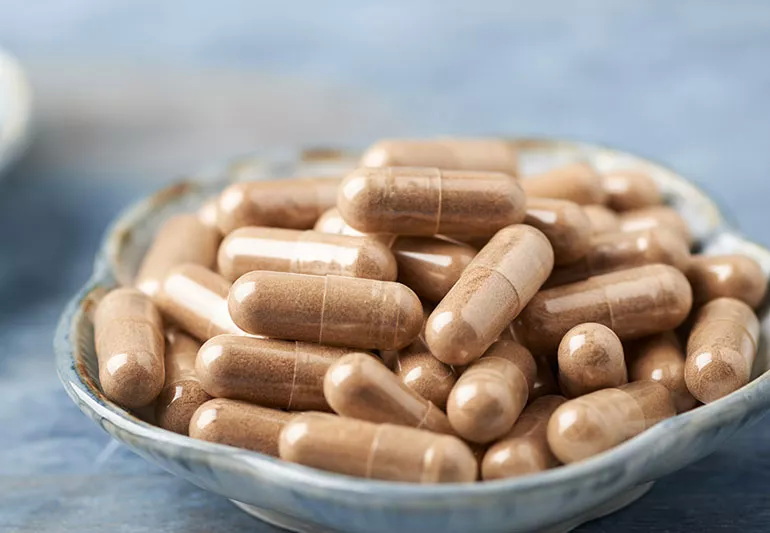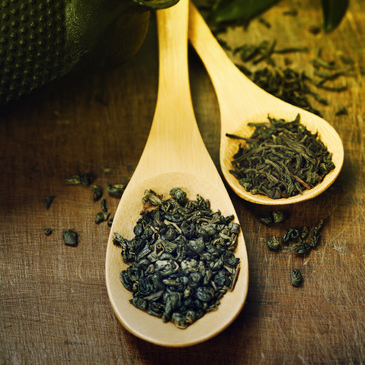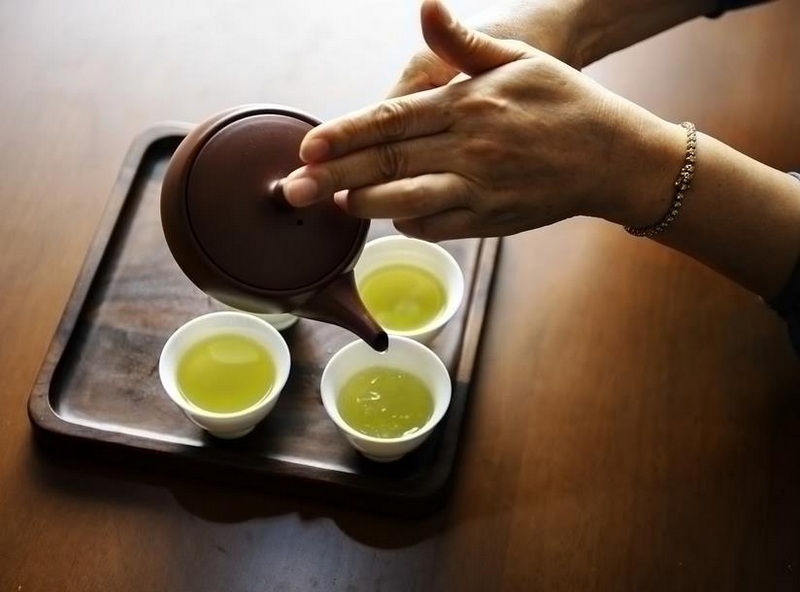Content Menu
● The Composition of Green Tea Extract
● The Extraction Process
● Health Benefits of Green Tea Extract
>> 1. Antioxidant Properties
>> 2. Weight Management
>> 3. Heart Health
>> 4. Brain Function
>> 5. Liver Protection
● Forms and Dosage of Green Tea Extract
● Potential Side Effects and Precautions
● Green Tea Extract vs. Drinking Green Tea
● Uses of Green Tea Extract
● Choosing a Green Tea Extract Supplement
● Conclusion
● Frequently Asked Questions
>> 1. Is green tea extract safe for everyone?
>> 2. How much EGCG should I look for in a green tea extract supplement?
>> 3. Can green tea extract replace drinking green tea?
>> 4. How long does it take to see results from taking green tea extract?
>> 5. Are there any drug interactions I should be aware of when taking green tea extract?
● Citations:
Green tea extract is a concentrated form of green tea, derived from the leaves of the Camellia sinensis plant. This potent supplement harnesses the beneficial compounds found in green tea, particularly its antioxidants and polyphenols, in a convenient and easily consumable form. As we delve into the world of green tea extract, we'll explore its composition, benefits, uses, and potential side effects.


The Composition of Green Tea Extract
Green tea extract is primarily composed of polyphenols, specifically a class of compounds called catechins. The most abundant and well-studied catechin in green tea is epigallocatechin-3-gallate (EGCG)[1]. Other components include:
- Caffeine
- L-theanine
- Vitamins (C, B, E)
- Minerals (chromium, manganese, selenium, zinc)
The Extraction Process
The process of creating green tea extract involves several steps:
1. Harvesting fresh green tea leaves
2. Steaming the leaves to prevent oxidation
3. Drying the leaves
4. Extracting the active compounds using water or alcohol
5. Concentrating the extract
6. Drying the concentrated extract into powder form
This process results in a highly concentrated product that contains significantly more polyphenols than a typical cup of brewed green tea.
Health Benefits of Green Tea Extract
Green tea extract has been associated with numerous health benefits, thanks to its high concentration of antioxidants and other beneficial compounds[2].
1. Antioxidant Properties
The catechins in green tea extract, particularly EGCG, are powerful antioxidants that help protect cells from damage caused by free radicals. This antioxidant activity may contribute to various health benefits, including reduced risk of certain cancers and heart disease[3].
2. Weight Management
Green tea extract may aid in weight loss by increasing metabolism and fat oxidation. The combination of caffeine and catechins in green tea extract can boost the body's calorie-burning process, known as thermogenesis[5].
3. Heart Health
Regular consumption of green tea extract has been linked to improved cardiovascular health. It may help lower LDL (bad) cholesterol levels, reduce blood pressure, and decrease the risk of heart disease[1].
4. Brain Function
The combination of caffeine and L-theanine in green tea extract can improve cognitive function, including memory, attention, and reaction time. Some studies suggest that green tea extract may also have neuroprotective properties, potentially reducing the risk of neurodegenerative diseases like Alzheimer's and Parkinson's[2].
5. Liver Protection
Green tea extract has shown promise in protecting the liver from damage and improving liver function. It may be particularly beneficial for people with non-alcoholic fatty liver disease (NAFLD)[7].
Forms and Dosage of Green Tea Extract
Green tea extract is available in various forms, including:
1. Capsules
2. Tablets
3. Liquid extracts
4. Powders
The recommended dosage of green tea extract typically ranges from 250-500 mg per day. However, it's essential to consult with a healthcare professional before starting any new supplement regimen[6].

Potential Side Effects and Precautions
While green tea extract is generally considered safe for most people when taken in moderate amounts, there are some potential side effects and precautions to be aware of:
1. Liver damage: High doses of green tea extract have been associated with liver toxicity in some cases. It's crucial to adhere to recommended dosages and avoid taking green tea extract on an empty stomach[7].
2. Caffeine sensitivity: Green tea extract contains caffeine, which may cause side effects such as insomnia, nervousness, and increased heart rate in sensitive individuals.
3. Iron absorption: Green tea extract may interfere with iron absorption. People with iron deficiency anemia should avoid taking green tea extract with meals.
4. Drug interactions: Green tea extract may interact with certain medications, including blood thinners and some antibiotics. Always consult with a healthcare provider before adding green tea extract to your supplement routine.
Green Tea Extract vs. Drinking Green Tea
While both green tea extract and brewed green tea offer health benefits, there are some key differences:
1. Concentration: Green tea extract is much more concentrated than brewed tea, providing higher levels of beneficial compounds in a smaller dose.
2. Convenience: Green tea extract supplements are more convenient for those who don't enjoy drinking tea or want to avoid the caffeine content of multiple cups of tea.
3. Standardization: Green tea extract supplements often have standardized amounts of catechins, ensuring consistent dosing.
4. Potential risks: The concentrated nature of green tea extract also means a higher risk of side effects, particularly liver toxicity, compared to drinking green tea.
Uses of Green Tea Extract
Beyond its use as a dietary supplement, green tea extract has found applications in various industries:
1. Cosmetics: Green tea extract is often used in skincare products for its antioxidant and anti-aging properties.
2. Food and beverages: It's used as a natural flavoring and preservative in some food products.
3. Pharmaceuticals: A prescription ointment containing green tea extract is FDA-approved for treating genital warts[1].
Choosing a Green Tea Extract Supplement
When selecting a green tea extract supplement, consider the following factors:
1. EGCG content: Look for products that specify the amount of EGCG per serving.
2. Standardization: Choose supplements that are standardized to ensure consistent potency.
3. Third-party testing: Opt for products that have been tested by independent laboratories for purity and potency.
4. Form: Select a form (capsule, liquid, powder) that best fits your lifestyle and preferences.
5. Brand reputation: Choose supplements from reputable manufacturers with a history of quality products.
Conclusion
Green tea extract is a potent supplement that offers many of the health benefits associated with drinking green tea, in a more concentrated form. Its high antioxidant content, particularly EGCG, contributes to its potential benefits for heart health, weight management, brain function, and more. However, it's important to use green tea extract responsibly, adhering to recommended dosages and being aware of potential side effects and interactions. As with any supplement, it's best to consult with a healthcare professional before adding green tea extract to your routine.

Frequently Asked Questions
1. Is green tea extract safe for everyone?
While generally safe for most people when taken as directed, green tea extract may not be suitable for everyone. Pregnant or breastfeeding women, people with liver problems, and those sensitive to caffeine should consult a healthcare provider before use. Always follow recommended dosages to minimize the risk of side effects.
2. How much EGCG should I look for in a green tea extract supplement?
A high-quality green tea extract supplement typically contains 50-90% polyphenols, with EGCG making up about half of that. Look for products that provide 200-300 mg of EGCG per serving for optimal benefits.
3. Can green tea extract replace drinking green tea?
While green tea extract can provide many of the same benefits as drinking green tea, it shouldn't completely replace it. Drinking green tea offers additional benefits such as hydration and the enjoyment of the tea-drinking experience. A balanced approach might include both green tea extract supplements and regular green tea consumption.
4. How long does it take to see results from taking green tea extract?
The time frame for seeing results can vary depending on the specific benefit you're looking for and individual factors. Some effects, like improved mental alertness, may be noticeable within hours. Other benefits, such as weight loss or improvements in cholesterol levels, may take several weeks to months of consistent use to become apparent.
5. Are there any drug interactions I should be aware of when taking green tea extract?
Yes, green tea extract can interact with several medications. It may increase the effects of stimulant drugs and interfere with the absorption of certain antibiotics. It can also enhance the blood-thinning effects of medications like warfarin. Always consult with your healthcare provider about potential interactions before starting green tea extract supplements.
Citations:
[1] https://www.urmc.rochester.edu/encyclopedia/content?contenttypeid=19&contentid=GreenTeaExtract
[2] https://www.nccih.nih.gov/health/green-tea
[3] https://www.medicalnewstoday.com/articles/269538
[4] https://naturallythinking.com/green-tea-extract
[5] https://www.youtube.com/watch?v=kmlcjBJ05Sk
[6] https://www.zhounutrition.com/blogs/the-greatness-files/green-tea-extract-q-a
[7] https://www.healthline.com/nutrition/10-benefits-of-green-tea-extract
[8] https://www.youtube.com/watch?v=A7tjlpYdUGU
[9] https://www.webmd.com/vitamins/ai/ingredientmono-960/green-tea































